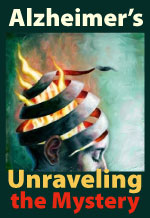By: Sue Hughes @ Medscape
 Among older adults, anemia is associated with an increased risk of developing dementia, a new study shows.
Among older adults, anemia is associated with an increased risk of developing dementia, a new study shows.
“We found that if there was anemia at baseline, the risk of dementia was increased by about 60%. This was slightly reduced after adjusting for other factors. But there was still a 40-50% increase in risk which was still quite significant. Anemia is of course a marker of general frailty, which will also correlate with dementia but we tried to control for this,” senior author, Kristine Yaffe, MD, University of California San Francisco, told Medscape Medical News.
She acknowledged that this is not enough evidence to say that correcting anemia will reduce the risk for dementia.
“We need another study where the anemia is treated to make this claim, but we could say that this is another reason to check for anemia more often in older people and to treat it.”
“I am not suggesting that these results should prompt people to rush out and start taking large doses of iron. If they want to rush out and do anything they should make sure they have an annual check up and get their hemoglobin measured, and if it is low get it corrected, under medical supervision,” Dr. Yaffe added.
Read more: http://www.medscape.com/viewarticle/808776
Related Online CEU Courses:
Alzheimer’s Disease – Overview is a 1-hour online CEU course that provides an overview of the prevalence, causes, symptoms, diagnosis, treatment, and progression of Alzheimer’s disease, as well as information about caregiving and caregiver support.
Caring for a Person with Alzheimer’s Disease is a 3-hour online CEU course that discusses practical issues concerning caring for someone with Alzheimer’s disease who has mild-to-moderate impairment, including a description of common challenges and coping strategies.
Alzheimer’s – Unraveling the Mystery is a 3-hour online CEU course that describes the risk factors for Alzheimer’s disease, effective steps for prevention, strategies for diagnosing and treating Alzheimer’s disease, and the search for new treatments.
Professional Development Resources is approved to offer continuing education courses by the American Psychological Association (APA); the National Board of Certified Counselors (NBCC); the Association of Social Work Boards (ASWB); the National Association of Alcoholism & Drug Abuse Counselors (NAADAC); the American Occupational Therapy Association (AOTA); the American Speech-Language-Hearing Association (ASHA); the Commission on Dietetic Registration (CDR); the California Board of Behavioral Sciences; the Florida Boards of Social Work, Mental Health Counseling and Marriage and Family Therapy, Psychology & School Psychology, Dietetics & Nutrition, and Occupational Therapy Practice; the Illinois DPR for Social Work; the Ohio Counselor, Social Worker & MFT Board; the South Carolina Board of Professional Counselors & MFTs; and by the Texas Board of Examiners of Marriage & Family Therapists and State Board of Social Worker Examiners.







